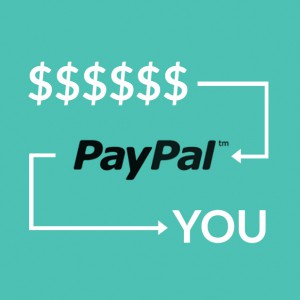We’ve been exploring what makes merchant banks a better solution for merchants than aggregators.
Previously: Part 1 – PCI Compliance | Part 2 – The Costs of Payment Aggregators Adds Up
 One of the greatest risks to your business when using a payment aggregator such as PayPal or Stripe may be the structure of the payment system itself. Unlike traditional banks and credit card processing systems, these merchant services providers are not deemed to be banks, are not required to follow banking regulations or be PCI compliant. The last issue may create liability and risk for the merchant because aggregators are not legally mandated to follow strict fraud prevention regulations. These issues can all affect how much control over your funds.
One of the greatest risks to your business when using a payment aggregator such as PayPal or Stripe may be the structure of the payment system itself. Unlike traditional banks and credit card processing systems, these merchant services providers are not deemed to be banks, are not required to follow banking regulations or be PCI compliant. The last issue may create liability and risk for the merchant because aggregators are not legally mandated to follow strict fraud prevention regulations. These issues can all affect how much control over your funds.
The Aggregator Controls the Money
In practice, a merchant services provider for online payments through handy POS systems is not required to disburse funds until they determine whether the transaction meets the terms of service and is not a fraud risk. Without PCI compliant procedures, this process can take days. Thus, the aggregator continues to control the money.
Moreover, you may have very little recourse other than to take the aggregator to court, and that takes time and money. Some of the aggregators will enforce their terms of service strictly, which adds more risk of the funds being held back. Any slight violation can result in funds being frozen indefinitely with no recourse. With a traditional merchant bank account, the customer’s payment goes directly into your business account, and you keep control.

Using the Processor’s Merchant Account
To gain an understanding of how this method works, your business uses the aggregator’s merchant account through the POS systems rather than opening and using your own with a bank. You deposit funds into the service provider’s bank account, and then you may transfer funds to pay for goods or into your own bank account. Moreover, some providers, PayPal in particular, offer debit cards to spend the money online with other businesses that accept those payments. This offers a relatively safe way to make payments online with most ecommerce sites, and most aggregators offer protections for both the customer and the business in credit card processing.
Thus, as a third party payment solution, the merchant services provider receives the money for the goods and services you provide. The money does not come directly from the customer. Until they disburse the funds, the money is the property of the aggregator. While these facts may be embedded in the terms of service agreements, many business owners fail to fully grasp the meaning and potential detriment to their cash flow, accounting and profitability. The credit card processing goes through an intermediary who controls the outcome.
Additional Risks
According to an FDIC advisory, accounts with payment aggregators require “careful due diligence, close monitoring and prudent underwriting.” In addition, there may be a greater risk of “potentially unfair or deceptive acts or practices under Section 5 of the Federal Trade Commission Act. This greater risk adds to the potential that your funds could be frozen as the payment processor makes its determination about possible fraud. Moreover, statistics such as higher than average chargebacks may be considered evidence of fraud, adding other reasons that the aggregator may freeze your money.
The POS systems of aggregators offer simple, easy set up and access to the online ecommerce world. However, considering that nearly all of these transactions happen automatically without review or recourse, the risk to your business of a disruption in cash flow or the loss of a payment may be too great. While traditional merchant bank accounts require extra time, paperwork and verification, having complete control of the money once deposited into your account may be well worth the effort.

